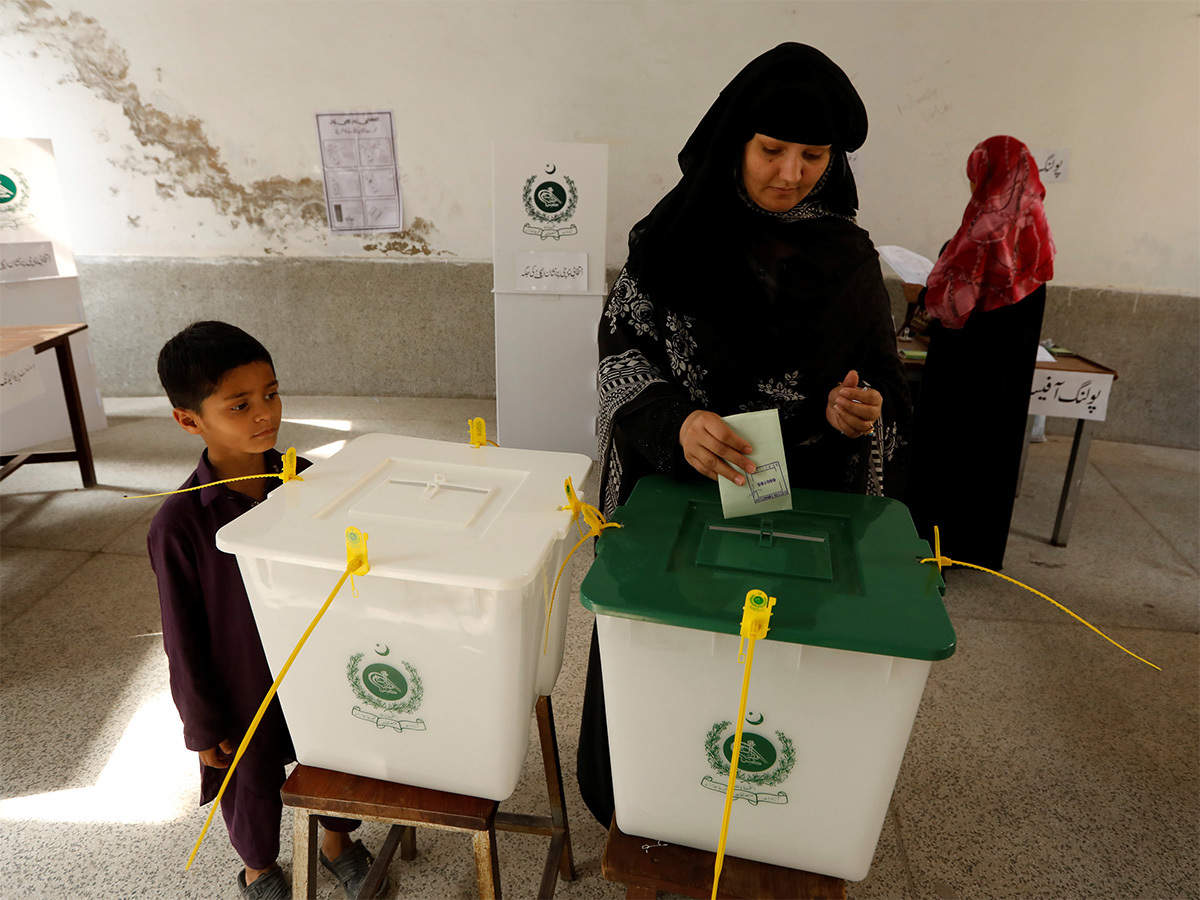
As Pakistan gears up for the general elections scheduled for February 8, 2024, the political landscape appears mired in a recurring narrative of dynastic dominance, institutional manipulation, and the erosion of democratic principles.[1] It is therefore important to dissect the intricacies of the forthcoming elections, shedding light on the systemic issues that undermine the democratic fabric of the nation. Despite the facade of change and democratic progression, the upcoming elections in Pakistan appear poised to follow a script that echoes the patterns of past electoral processes. The semblance of a level playing field is overshadowed by a pervasive influence—the deep state. Despite claims of a democratic transition, the hand of the establishment looms large, orchestrating an electoral ballet where the outcome aligns with its preferences. The candidates, political parties, and the very democratic ideals these elections are meant to uphold seem, in many instances, to dance to the orchestrated tunes of the deep state
The elections of 2024, much like their predecessors, bear witness to the entrenched influence of political dynasties. A disturbing trend unfolds as a new generation of leaders emerges from the well-established households of political actors. What distinguishes this election cycle is the central role that these political scions are poised to play, both before and after the elections, marking a departure from historical norms. In many instances, family members of prominent leaders are contesting polls together, creating a political landscape where, regardless of electoral outcomes, political families secure representation in the assembly.[2] This familial entrenchment is evident across influential political clans, including the Sharifs, Bhuttos, Qureshis, Gilanis, Legharis, Khars, Gormanis, Jatois, Waranr, Qaisranis, and others, spanning diverse regions and tribes. The intricate web of familial participation underscores the enduring challenges to democratic principles in Pakistan’s political landscape.[3]
At the forefront of this political charade are the Sharifs and Bhuttos, stalwarts of dynastic politics in Pakistan. Asif Ali Zardari, Bilawal Bhutto Zardari, Nawaz Sharif, Maryam Nawaz, and Shehbaz Sharif navigate the electoral landscape, their familial bonds intertwining with political maneuvers. This dynastic symphony echoes a political monopoly that supersedes democratic principles. The strategic placement of family members in key constituencies exposes the blatant disregard for fair competition and merit-based politics.
In the midst of this political theater, the party that once promised a departure from traditional politics finds itself ensnared in a web of adversity. The Pakistan Tehreek-e-Insaf (PTI), led by Imran Khan, faces an unprecedented crackdown, raising questions about the fairness of the electoral process. Khan’s incarceration since August 2023 has cast a shadow over the party’s prospects, with the rejection of nomination papers and internal dissent further tarnishing its image. The PTI’s claim of victimhood appears less as a call for democratic reform and more as a desperate plea for sympathy. Recently, the Election Commission of Pakistan (ECP) has imposed a five-year ban on Pakistan Tehreek-e-Insaf (PTI) Vice Chairman Shah Mehmood Qureshi from participating in elections under Article 63 (1)(h) of the Constitution. The ban prohibits Qureshi from running in the upcoming general elections scheduled for February 8 and subsequent elections.[4]
The specter of historical electoral rigging looms large over the upcoming polls, evoking memories of manipulated outcomes that have marred Pakistan’s democratic journey. The military’s pervasive influence on the political landscape continues to be a significant factor, with institutional meddling casting doubt on the sincerity of the electoral process. General Qamar Javed Bajwa’s acknowledgment of military involvement in politics only underscores the deeply entrenched nature of such interference.[5] The attempt at election engineering, this time preceding the polling day, exemplifies a systemic challenge that poses a threat to the credibility of Pakistan’s democracy.
Within the theater of Pakistani politics, the feeble resistance against conventional manipulation methods suggests a lack of genuine opposition. The PTI’s portrayal of itself as a victim may resonate with its supporters, but it fails to address the root causes of the systemic issues plaguing the electoral process. The purported shifting dynamics within the state and society remain elusive, overshadowed by the deeply ingrained forces orchestrating the political masquerade.
Against the backdrop of this political theater, the looming security challenges and poll-related violence serve as mere side acts in a grand performance of chaos. Chief Election Commissioner Sikanadar Sultan Raja and Acting Interior Minister Gohar Ejaz’s assurances, though intended to instill confidence, appear feeble in the face of mounting concerns.[6] The potential for disturbances, coupled with the historical backdrop of violence during elections, underscores the fragile nature of the democratic process in Pakistan. As Pakistan hurtles toward the electoral spectacle of 2024, the intricate interplay of dynastic dominance, institutional interference, and security concerns paints a vivid picture of a dysfunctional democracy. The charade of elections, characterized by family-centric politics and the persistent specter of manipulation, raises serious questions about the nation’s democratic evolution. In the aftermath of this grand farce, the lingering doubt remains – is Pakistan truly on the path to democratic maturation, or has it become a captive audience to a recurring, tragic political play that mocks the essence of democracy? The search for answers continues in the shadows of a democracy struggling to find its true voice amidst the cacophony of vested interests.
[1] https://ecp.gov.pk/general-elections
[2] https://www.arabnews.com/node/2453341/world
[3] https://thefridaytimes.com/01-Feb-2024/elections-2024-it-is-all-in-the-family
[4] https://www.geo.tv/latest/529818-shah-mahmood-qureshi-disqualified-to-contest-polls-for-5-yearsecp-disqualifies-shah-mahmood-qureshi-from-contesting-polls-for-5-years
[5] https://www.voanews.com/a/outgoing-pakistan-army-chief-admits-involvement-in-politics/6847385.html






